Bid Confidently, Win Consistently – Zip Code Estimates Made Easy!
- Accurancy
- Efficiency
- Transparency
- Customization
- Time Saving
- Professionalism
- Cost Control
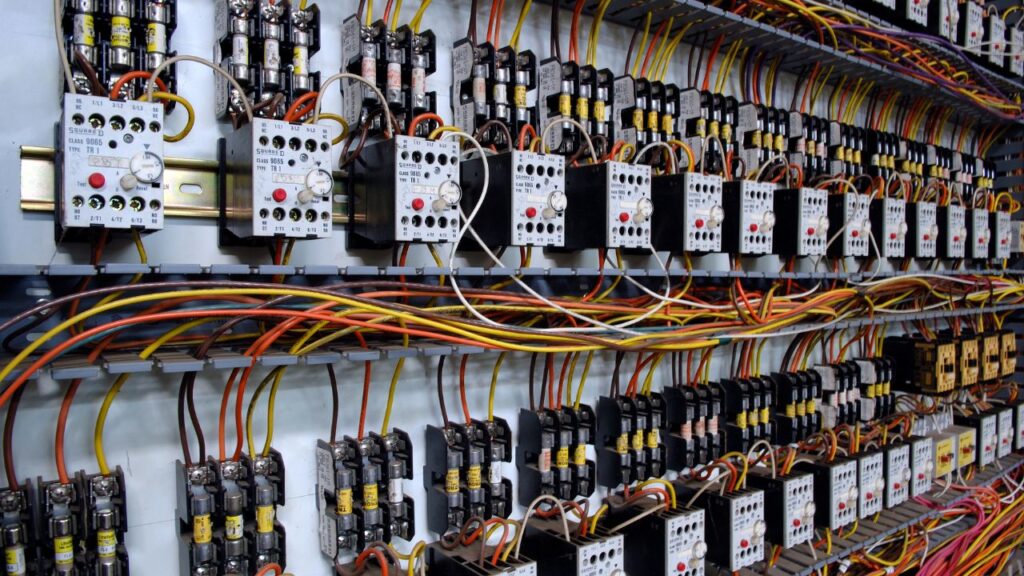
If the total cost for electrical rewiring in a 3,500 sq ft house ranges from $20,000 to $35,000, it underscores the variability based on factors like the complexity of the wiring system and any additional upgrades required. Estimate Florida Consulting provides detailed estimates tailored to your specific needs, ensuring transparency and accuracy in budgeting for the project. With our expertise, we prioritize safety and functionality, utilizing quality materials and skilled labor to deliver exceptional results.
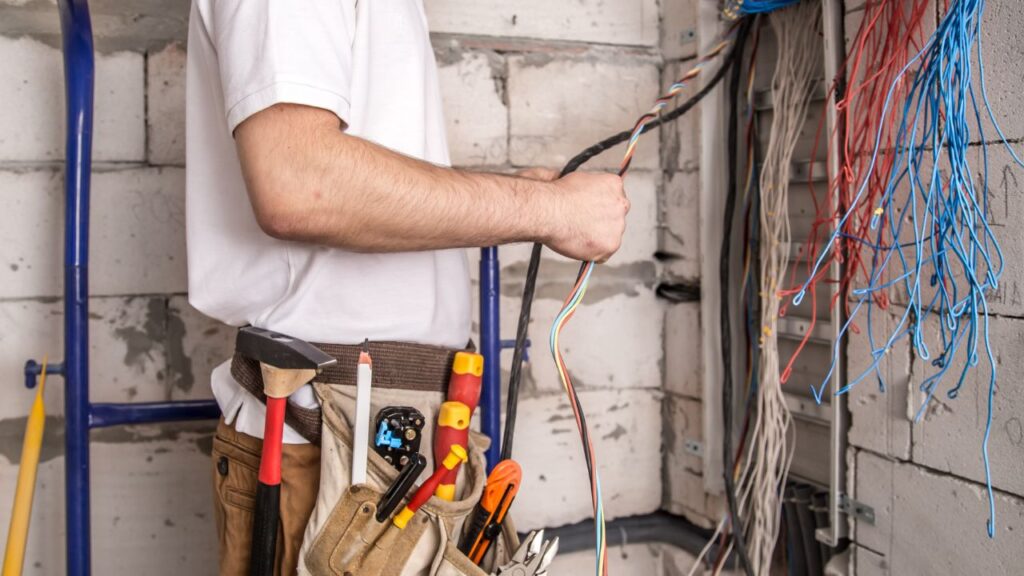
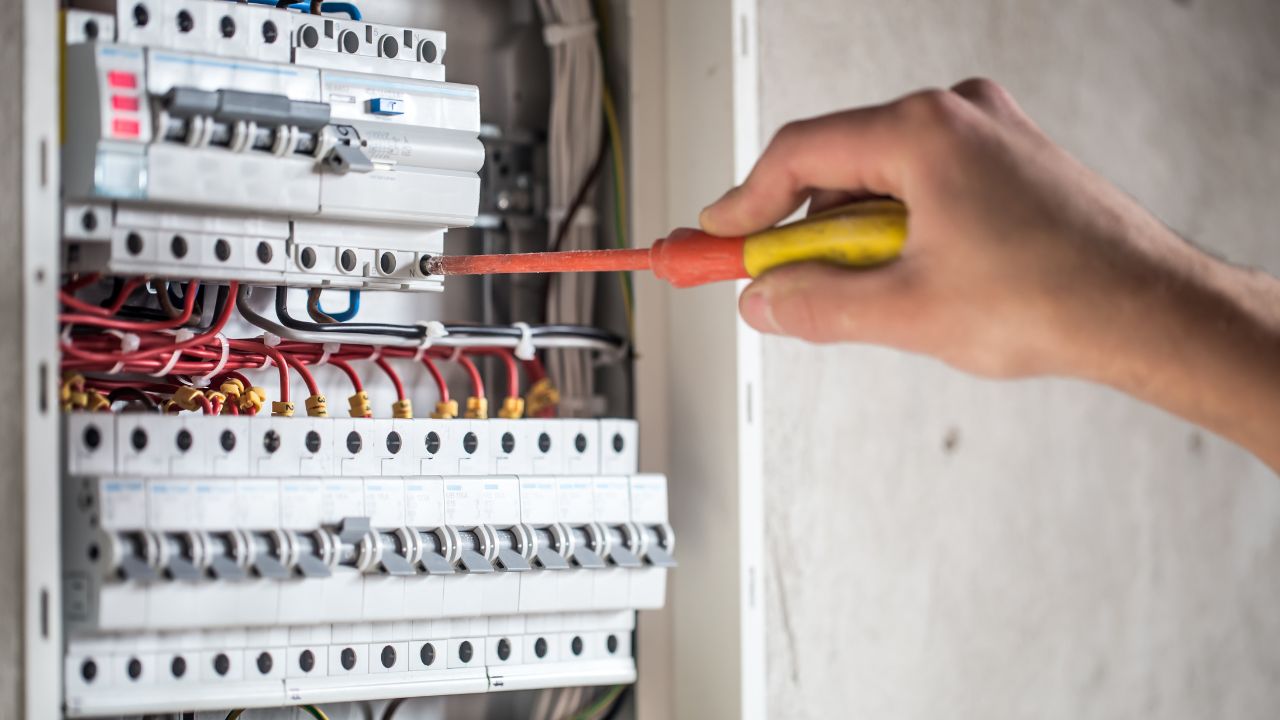
Fully Insured Licensed Hire a Contractor For Electrical Installation
Hire Contractor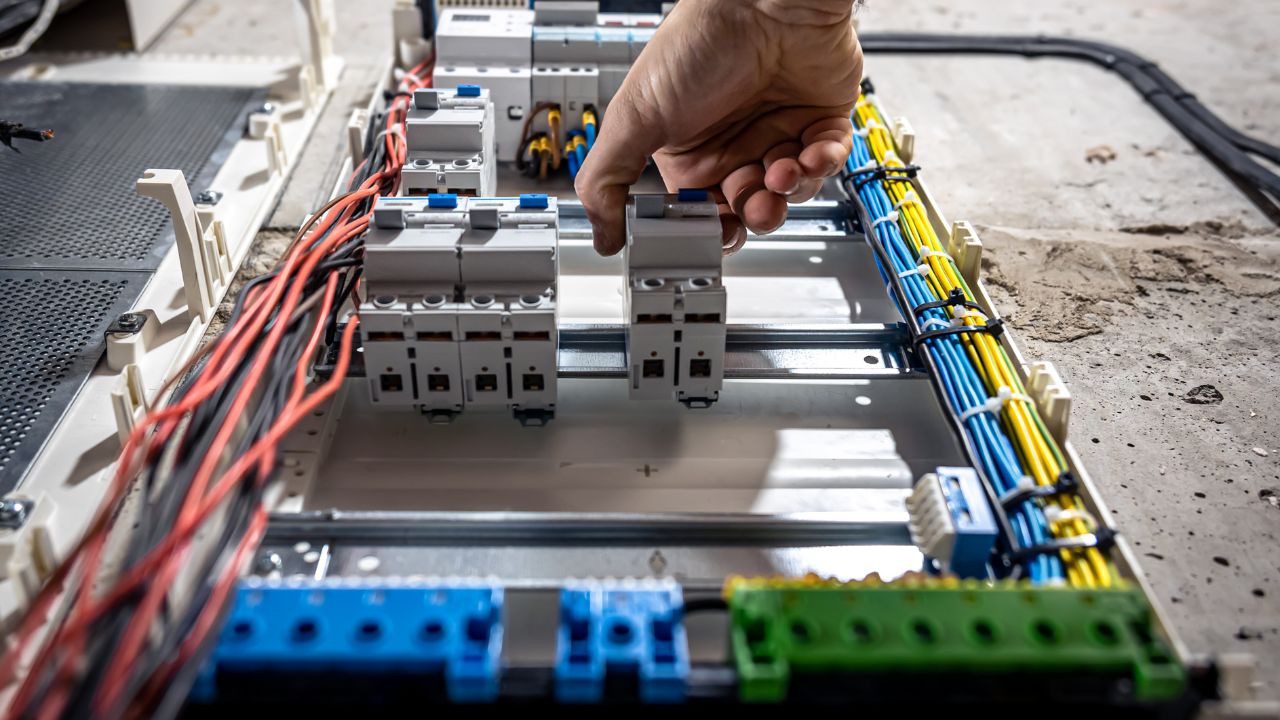
Make Informed Design Decisions Showcase Your Design Ideas
Get RenderingElectrical rewiring involves replacing or upgrading the electrical wiring in a residential property to ensure safety, functionality, and compliance with electrical codes.
This process is essential in older homes where outdated wiring may pose fire hazards due to wear and tear. By updating the wiring, homeowners can enhance the overall safety of their property and reduce the risk of electrical fires.
Rewiring can improve the efficiency of electrical systems, leading to lower energy bills and a more reliable electrical supply. Ensuring that the wiring meets current standards also increases the property value and can make it more attractive to potential buyers in the future.
Electrical rewiring is necessary to maintain the safety and efficiency of the electrical system in a residential property, reducing the risk of electrical hazards and ensuring proper functionality.
Regular inspections and updates to the electrical wiring are crucial to prevent potential fire hazards, electrical shock, or power surges that could lead to costly damage. Over time, wear and tear can degrade wiring, causing overheating or short circuits. By investing in rewiring when needed, homeowners can ensure that their electrical system meets current safety standards and operates efficiently, ultimately providing peace of mind and a secure living environment for their family.
Recognizing the signs that a house requires electrical rewiring is crucial for the safety and functionality of the property, including issues such as an outdated wiring system and electrical malfunctions.
Outdated wiring in a residential property can pose significant safety hazards, leading to potential electrical fires and shocks. If you notice flickering lights, frequently tripping circuit breakers, or burning smells, these are clear signs that your electrical system may need attention. Ignoring these warning signals can not only impact the efficiency of your electrical appliances but also put your household at risk. It’s essential to address these issues promptly to ensure the well-being of your home and its occupants.
Frequent tripping of circuit breakers signals potential issues within the electrical system that may require electrical rewiring to address underlying problems.
When circuit breakers trip frequently, it is a clear indication that something is amiss within the electrical setup. This warning sign should never be ignored, as it serves as a safeguard against potential electrical hazards.
Understanding the causes behind these repeated trips is crucial in ensuring the safety and efficiency of your electrical system. Common triggers for circuit breaker tripping include overloaded circuits, short circuits, and ground faults.
By promptly addressing these issues, you not only enhance the reliability of your electrical system but also minimize the risk of electrical fires and other dangers.
Flickering lights can indicate wiring problems or electrical faults, prompting the need for electrical rewiring to ensure safety and prevent potential hazards.
These flickering lights may seem harmless at first glance, but they could signify underlying issues within the electrical system that pose serious safety risks. Ignoring these warning signs can lead to overheating, electrical fires, or even electric shocks.
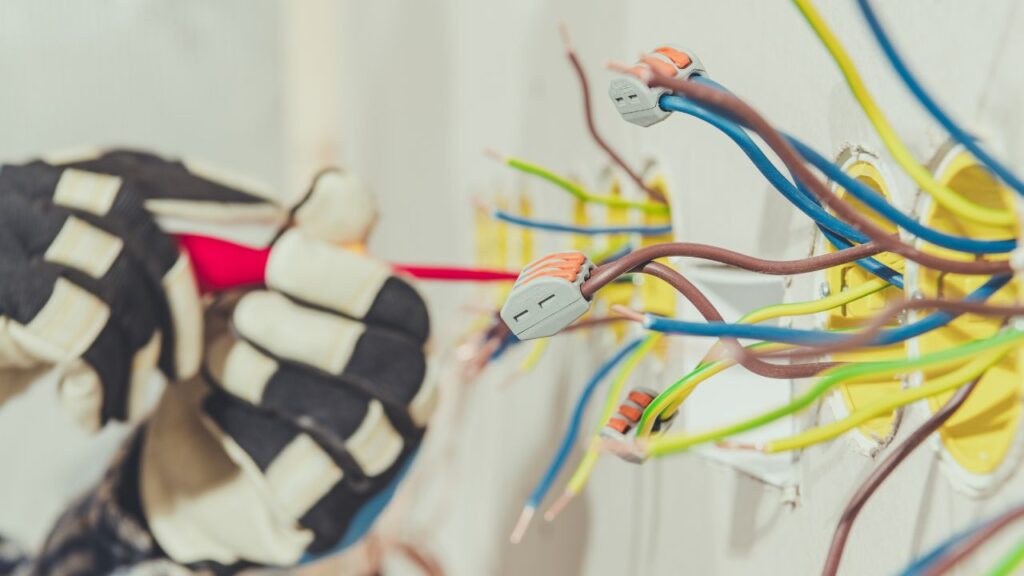
Therefore, it is crucial to address these problems promptly through rewiring to guarantee the safety of your home or workplace.
By investing in professional rewiring services, you can prevent potential hazards and ensure that your electrical system operates efficiently and securely.
The presence of a burning smell or sparks from outlets indicates severe electrical hazards that necessitate immediate attention, potentially requiring electrical rewiring to mitigate risks.
Ignoring such warning signs can lead to fires, damaged electronics, or even electrocution. It is crucial to prioritize safety by shutting off the power to the affected area and contacting a qualified electrician promptly. In the interim, refrain from using the outlet and avoid overloading the circuit. Rewiring the electrical system may be the most effective solution to prevent potential disasters and ensure the safety of your home and inhabitants.
An outdated wiring system poses significant risks and may not be compliant with current electrical codes, necessitating electrical rewiring to enhance safety and ensure regulatory compliance.
Outdated wiring systems can increase the likelihood of electrical hazards such as short circuits, fires, and electric shocks. Non-compliance with modern regulations not only jeopardizes the safety of occupants but can also lead to legal consequences for property owners.
Rewiring is crucial not only for protecting lives and property but also for meeting the standards set by regulatory bodies to prevent accidents and ensure a secure electrical infrastructure.

The cost of electrical rewiring varies depending on several factors, including the size of the property, the complexity of the electrical system, and the extent of the rewiring needed. On average, homeowners can expect to pay between $3,500 and $20,000 or more for rewiring a home. Basic rewiring projects with standard materials may cost around $3,000 to $8,000, while more extensive projects using premium materials and customization could range from $8,000 to $20,000. Labor costs, materials, and the complexity of the rewiring project all contribute to the final cost. It’s essential to consult with licensed electricians to obtain accurate cost estimates tailored to your specific needs and circumstances.
Several factors can influence the cost of electrical rewiring for a residential property, including the size of the house, the complexity of the wiring, and the need for additional electrical upgrades.
Property size plays a significant role in determining the overall cost, as larger homes require more materials and labor to rewire. The complexity of the wiring system, such as the accessibility of existing wiring and the need to replace outdated components, can also impact the pricing. If the property requires additional electrical upgrades, such as installing new outlets or upgrading the electrical panel to meet current safety standards, these enhancements will add to the total cost of the rewiring project.
The average cost of electrical rewiring for a 3,500 square foot house can vary depending on various factors such as the existing wiring condition, the complexity of the electrical system, and the materials used. Typically, homeowners can expect to pay between $6,000 and $25,000 for rewiring a home of this size. Basic rewiring projects with standard materials may cost around $6,000 to $12,000, while more extensive projects with premium materials and customization could range from $12,000 to $25,000 or more. Labor costs, materials, and any additional electrical work required all contribute to the final cost. It’s advisable to consult with licensed electricians to obtain accurate cost estimates tailored to your specific needs and budget.

The complexity of the electrical system, including the number of circuits and the need for any upgrades to meet current building codes, can further impact the total cost estimate.
The duration required to rewire a 3,500 sq ft house depends on the project scope, complexity, and the efficiency of the electrical contractor handling the rewiring.
Considering the complexity of rewiring projects, the timeline can vary significantly. Factors such as the age of the property, existing wiring conditions, and the need for upgrades to meet current electrical standards play a crucial role in determining the project duration.
Skilled electrical contractors are adept at conducting thorough assessments to gauge the scope of work accurately, which in turn impacts the estimated timeline. Timely completion of rewiring is essential not only for ensuring safety but also for minimizing disruption to the homeowner’s daily routine.
Effective planning and clear communication between the homeowner and the contractor are vital to meeting project deadlines.
While some homeowners may consider DIY electrical rewiring to save costs, it is crucial to recognize the safety concerns and legal requirements involved, emphasizing the expertise of licensed electricians.
Electrical rewiring is a complex and potentially dangerous task that requires precision and knowledge of electrical systems. Engaging in DIY electrical work without proper training can lead to serious safety risks, such as electric shocks, fires, and even fatalities.
There are strict legal requirements in place to ensure the safety of occupants and compliance with building codes. Professional electricians not only have the necessary skills and experience to complete the rewiring safely but also understand the legal implications, ensuring that the work meets all regulatory standards.
Undertaking electrical rewiring without proper experience or permits can pose significant safety hazards and may lead to code violations, underscoring the importance of adhering to safety protocols.
Ensuring that electrical work is carried out in compliance with regulations is crucial to prevent the risks associated with non-compliance, as improper wiring can result in electrical fires, shocks, and even fatalities.
Obtaining electrical permits not only ensures that the work meets regulatory standards but also signifies that a qualified professional has reviewed and approved the modifications.
DIY projects involving rewiring, if not done correctly, can have long-lasting repercussions, both legally and in the safety of the occupants.
Electrical rewiring is subject to specific legal regulations that mandate inspections and compliance with electrical codes, highlighting the need for professional oversight and adherence to industry standards.
These legal regulations are essential to ensure the safety and functionality of electrical systems in buildings. Electrical inspections are crucial checkpoints that verify the work meets established codes and standards, reducing risks of hazards like fires or electrical shocks.
Failure to comply with these regulations can result in fines, project delays, or even legal consequences. Therefore, it is imperative to engage qualified electricians who are knowledgeable about the latest industry standards and can guarantee that the rewiring process is conducted correctly and in accordance with all legal requirements.
Preparing for electrical rewiring in a 3,500 sq ft house involves steps such as clearing the work area, informing family members and neighbors, and establishing a comprehensive budget to manage the project effectively.
Clearing the work area should include removing furniture, appliances, and other items to provide easy access to the electrical systems. Effective communication with family members and neighbors is crucial to ensure everyone is aware of the upcoming work and any necessary precautions.
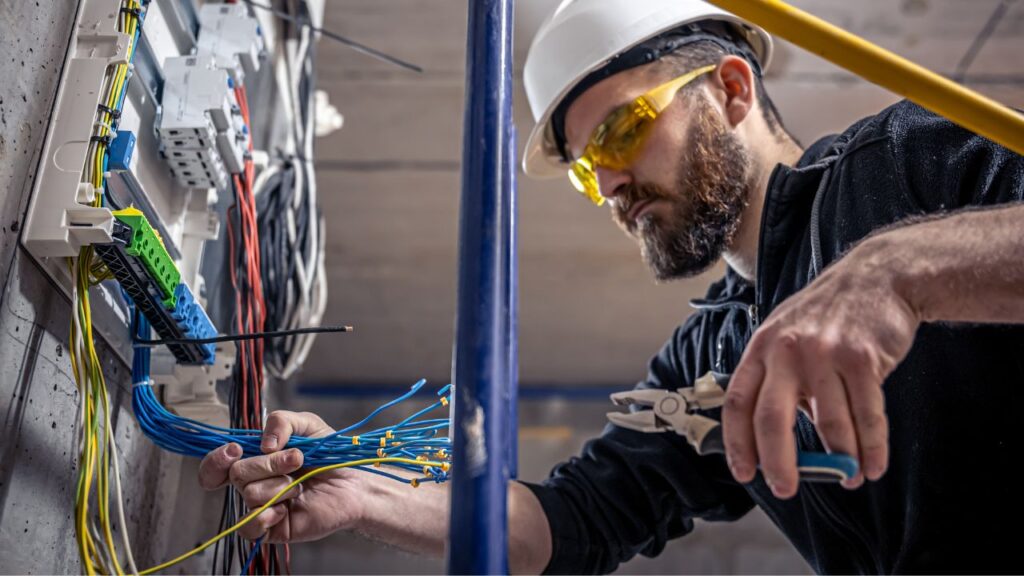
When establishing the budget, it’s important to consider the cost of materials, labor, potential unexpected expenses, and permits. Project management considerations should involve creating a timeline, hiring qualified professionals, and regularly monitoring progress to stay on track.
Clearing the work area before electrical rewiring is essential for safety, efficiency, and facilitating the renovation process, ensuring a conducive environment for the rewiring project.
By preparing the work area adequately, you not only reduce the risk of accidents but also streamline the rewiring process. Safety considerations should always be a top priority when dealing with electrical work. Organizing the workspace not only enhances safety but also boosts productivity and makes it easier to access tools and materials. A well-structured work area can save time and effort by minimizing distractions and potential hazards. Remember, a well-prepared work area sets the stage for a successful and smooth renovation project.
Informing family members and neighbors about upcoming electrical rewiring helps manage expectations, minimize disruptions, and foster communication during the renovation process.
This open line of communication is crucial for ensuring everyone is aware of the potential changes in schedules or routines due to the rewiring. By sharing information proactively, you can avoid misunderstandings and confusion among those living nearby. Involving neighbors in the process can also lead to a cooperative atmosphere, where everyone works together to navigate any disruptions smoothly. Building a sense of community through clear communication can not only ease tensions but also create a supportive network during this period of transition.
From small to large projects, residential to commercial, we’re here to help you win. Fast results guaranteed.
Creating a comprehensive budget for electrical rewiring involves estimating costs, considering materials needed, and accounting for potential contingencies to ensure financial preparedness for the project.
The first step in budget planning is to assess the scope of the rewiring project by identifying the number of rooms or areas that need electrical work.
Once the scope is determined, research different cost estimation methods such as obtaining quotes from electrical contractors or using online calculators to get an idea of the overall expenses involved.
It is crucial to also factor in the cost of materials required for rewiring, such as wires, outlets, switches, and any additional components. Making a list of these materials and their prices will help in creating a more accurate budget.
Having a buffer for unexpected costs or emergencies is essential for financial preparedness, as electrical projects can sometimes uncover hidden issues that may require additional funds.
The electrical rewiring process includes stages such as:
Conducting final testing and inspection to ensure system functionality and safety
During the initial inspection phase, professionals assess the condition of the existing wiring to determine the scope of work needed. After this evaluation, the removal of old and faulty components begins, ensuring a clean slate for the installation of new wiring. Following the installation, meticulous testing is conducted to check the connectivity and safety of the electrical system. Quality assurance measures are implemented throughout each phase to guarantee a reliable and compliant rewiring process that meets industry standards.
Thoroughly inspecting the existing wiring is critical at the start of the rewiring process to identify potential issues, assess safety risks, and plan for necessary upgrades.
By conducting a thorough assessment of the current wiring, homeowners can ensure that the electrical system is up to date and meets safety standards. Safety evaluations play a crucial role in preventing electrical hazards and minimizing the risk of fires or electrical shocks.

Identifying areas for improvement or replacement allows for a more efficient and reliable electrical setup, enhancing both the functionality and safety of the home. It is essential to prioritize these evaluations to maintain a secure and efficient electrical system that meets the needs of modern living.
Removing old wiring during the rewiring process involves dismantling outdated components, replacing defective parts, and ensuring proper disposal of removed materials to prepare for new installations.
One crucial step in removing old wiring is to carefully identify and disconnect the power source to ensure safety. It is imperative to use appropriate tools and techniques to remove the wiring without causing damage to the surrounding structure.
Inspecting the old wiring for any signs of wear or damage is essential before deciding on the replacement. When replacing the old wiring, make sure to use materials that are up to current safety standards to enhance the overall performance of the electrical system.
Proper waste disposal procedures should be followed, such as separating recyclable materials from hazardous waste to minimize environmental impact.
Installing new wiring involves upgrading existing components, implementing wiring enhancements, and ensuring the compatibility and efficiency of the electrical system in the rewired property.
By opting for wiring upgrades, property owners can experience reduced energy costs and improved safety. It is crucial to consider the compatibility of the new wiring with the existing electrical framework to avoid any potential issues. Efficient wiring installations not only enhance the functionality of the system but also contribute to a more sustainable and reliable electrical setup. Updating the wiring can increase the property’s overall value, making it a worthwhile investment for both short-term and long-term benefits.
Conducting thorough testing and a final inspection after rewiring is essential to verify system integrity, compliance with safety standards, and ensure the successful completion of the electrical upgrade project.
During the testing procedures post-rewiring, various tests are conducted to assess the functionality and safety of the electrical systems. This includes checking for proper voltage levels, grounding continuity, and circuit protection mechanisms.
Inspectors carefully examine connections, cables, and conduits to confirm they meet the necessary criteria for secure installations.
Following rigorous safety standard compliance checks, technicians conduct a final inspection to validate that all components are in accordance with the applicable regulations and industry standards. Quality assurance measures play a crucial role in guaranteeing that the rewiring work meets the required specifications and ensures reliability in the long run.
Electrical rewiring is a critical and complex process, especially for a 3,500 sq ft house. It’s essential for ensuring safety, functionality, and compliance with current electrical standards. Recognizing signs like frequent circuit breaker trips, flickering lights, burning smells, or sparks from outlets is crucial for timely intervention. Costs vary based on factors like house size, wiring complexity, and additional upgrades, with professional help being imperative due to the risks and technicalities involved. Preparing for the process involves clearing work areas, budgeting, and understanding the steps involved – inspection, old wiring removal, new installation, and thorough testing. Ultimately, professional rewiring enhances safety, efficiency, and the value of your home, making it a worthwhile investment.
The cost of rewiring a 3,500 sq ft house can vary widely, typically ranging between $10,000 to $20,000. Factors influencing cost include the age of the house, complexity of the wiring, type of materials used, and labor rates in your area.
The duration for rewiring a house of this size can range from one to two weeks, depending on factors like the complexity of the existing wiring, the home’s layout, and the extent of upgrades needed.
Yes, signs include frequent tripping of circuit breakers, flickering or dimming lights, a burning smell or sparks from outlets, outdated wiring systems, and any visible wire damage.
While DIY can be tempting, rewiring is a complex and potentially hazardous task that requires professional expertise. It’s recommended to hire licensed electricians to ensure safety and compliance with electrical codes.
Benefits include enhanced electrical safety, prevention of potential fire hazards, improved functionality and efficiency of your electrical system, increased property value, and peace of mind knowing your home meets current electrical standards.
Here I am going to share some steps to get your electrical rewiring in a 3500 sq ft house for 2025 estimate report.
You can send us your plan on info@estimatorflorida.com
Before starting your project, we send you a quote for your service. That quote will have detailed information about your project. Here you will get information about the size, difficulty, complexity and bid date when determining pricing.
Our team will takeoff and estimate your project. When we deliver you’ll receive a PDF and an Excel file of your estimate. We can also offer construction lead generation services for the jobs you’d like to pursue further.



561-530-2845
info@estimatorflorida.com
Address
5245 Wiles Rd Apt 3-102 St. Pete Beach, FL 33073 United States
561-530-2845
info@estimatorflorida.com
Address
5245 Wiles Rd Apt 3-102 St. Pete Beach, FL 33073 United States
All copyright © Reserved | Designed By V Marketing Media | Disclaimer